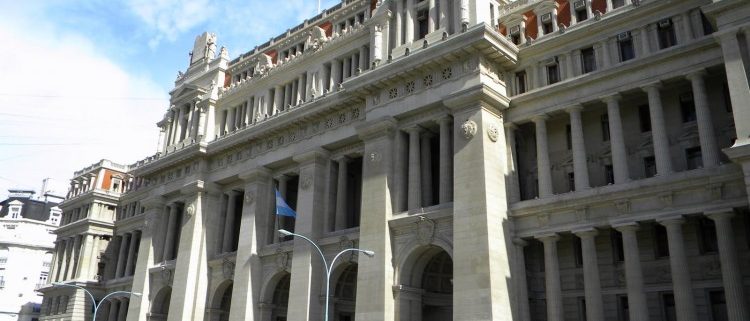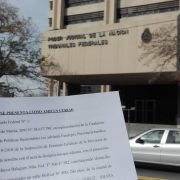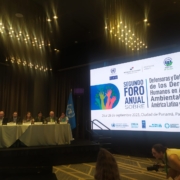Concern over a Supreme Court decision that weakens human rights treaties in Argentina
A recent decision from the highest tribunal of Argentina finds that it is not mandated to change its decisions, even when these decisions were found to be violations human rights by the Inter-American Court of Human Rights.
“Below, we offer a google translate version of the original article in Spanish. This translation may not be accurate but serves as a general presentation of the article. For more accurate information, please switch to the Spanish version of the website. In addition, feel free to directly contact in English the person mentioned at the bottom of this article with regards to this topic.”
On February 14, 2017, the Argentine Supreme Court rejected the presentation of the Directorate of Human Rights of the Ministry of Foreign Affairs and Worship, which requested that, as a result of the ruling of the Inter-American Court in the case “Fontevecchia et al. C / Argentine Republic, “a final judgment of the Supreme Court would be rendered null and void. The Inter-American Court of Human Rights had established that the Argentine Supreme Court should annul a civil conviction against two journalists that was understood as a violation of freedom of expression.
The new jurisprudence of the Supreme Court represents a disturbing change in the sustained jurisprudence that had allowed to position the Argentine right in a place of vanguard at regional level with respect to the scope and normative value of the international human rights treaties. According to the new criterion, the Inter-American Court of Human Rights has no jurisdiction to order review of Supreme Court rulings that violate human rights.
This is a serious setback in human rights, which weakens the value of the inter-American system of protection and places the Supreme Court practically outside the state structure, without the possibility of its decisions being reviewed in that supranational instance. In this way, the Supreme Court states that its decisions would be the only state acts unrelated to the control of human rights tribunals, further limiting their accountability.
This Supreme Court jurisprudential change confirms the fears expressed by many organizations, academics and human rights experts, including FUNDEPS, when a little more than a year ago we objected to the nominations of Drs. Rosenkrantz and Rossatti. Some of the criticisms we made at that time pointed to their doctrinal positions contrary to the full validity of international human rights treaties.
In short, we reject the criterion of our highest court and hope that it will be modified to avoid weakening the system of protection of human rights in our country.
More information
- Summary and full text of the decision of the Supreme Court of Argentina
- Record of the case before the Inter-American Court of Human Rights
Contact
Juan Carballo, Executive Director











